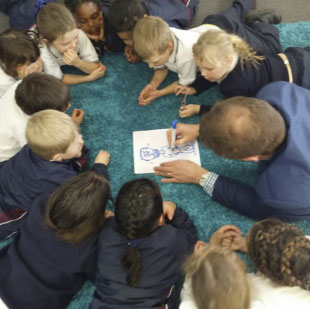Download a printable copy of this article (PDF 341KB)

- Choose questions to match your system.
- Ensure your questions keep students in the current context
- Use your questions to move closer to solutions, rather than further away
- Take a Past > Present > Future attitude to questioning.
- Ask questions that promote responsibility and empathy.
Most teachers automatically respond to conflict, questionable behaviour choices and even instances of student bullying by asking questions.
It is well worth examining the purpose of our questioning, as this will drive the questions we ask, the order in which we ask them and the way we ask them.
Most of us understand that the purpose of questioning is investigation. This is a component of the Adversarial or Blame Based Approach where questions are asked to allow us to gain a deeper understanding or a clearer picture of what has gone wrong. Many teachers report that the exorbitant amount of time at this stage of questioning is a bit like Educational CSI. This is because of a failure to recognise that most students will try to avoid the potential risks of sanctions against them by constantly referring to past contexts or experiences.
“Sometimes, questions are more important than answers.”
– Nancy Willard
If questions are aimed at investigation, students are encouraged to exaggerate and fabricate because they believe it will help their case. Teachers often hear irrelevant explanations such as “Well, she looked at me funny four years ago and I just knew we’d never be friends.”
In the Adversarial/Blame based system, we ask questions such as:
- What happened?
- Who’s to blame?
- What punishment do I need to hand out?
These questions genuinely serve an Adversarial/Blame based system that is used in the judicial system. The problem is not the questions themselves, but that they are being used in the wrong system. Schools are houses of learning and not of crime and punishment.
Within the newer Restorative Practice we encourage young people to move swiftly beyond the past and into the present and future. When we question restoratively, we still ask what happened, but we aren’t seeking a forensic level of understanding of the situation. We’re simply looking for a gist. So, rather than investigate who did or said what in the days or years leading up to the incident, after a few responses we might simply summarise the stories with “Ok, it would seem to me that some harsh words were said at lunchtime today and that a couple of people even got a little physical. Is that right? Ok, let’s move on.”
Moving on explores the present, the current harm. We simply ask how the events of the day have impacted the people present and even those who aren’t.
Moving into the future is all about what needs to be done to turn those frowns upside down. We compel students to take action that genuinely addresses the negative feelings caused and replaces them with positive feelings. It may sound complicated, but it’s a simple tweak in questioning that achieves this aim. Instead of Adversarial/Blame questions, we ask:
- What happened?
- How has that made people feel?
- What are you prepared to do about that?
In this way, we teach, foster and practise two areas that are central to any school’s ambitions around countering bullying and any teacher’s hope for a harmonious relational learning environment – Responsibility and Empathy. The intentional pursuit of these two highly valuable commodities is supported through our questioning processes.








